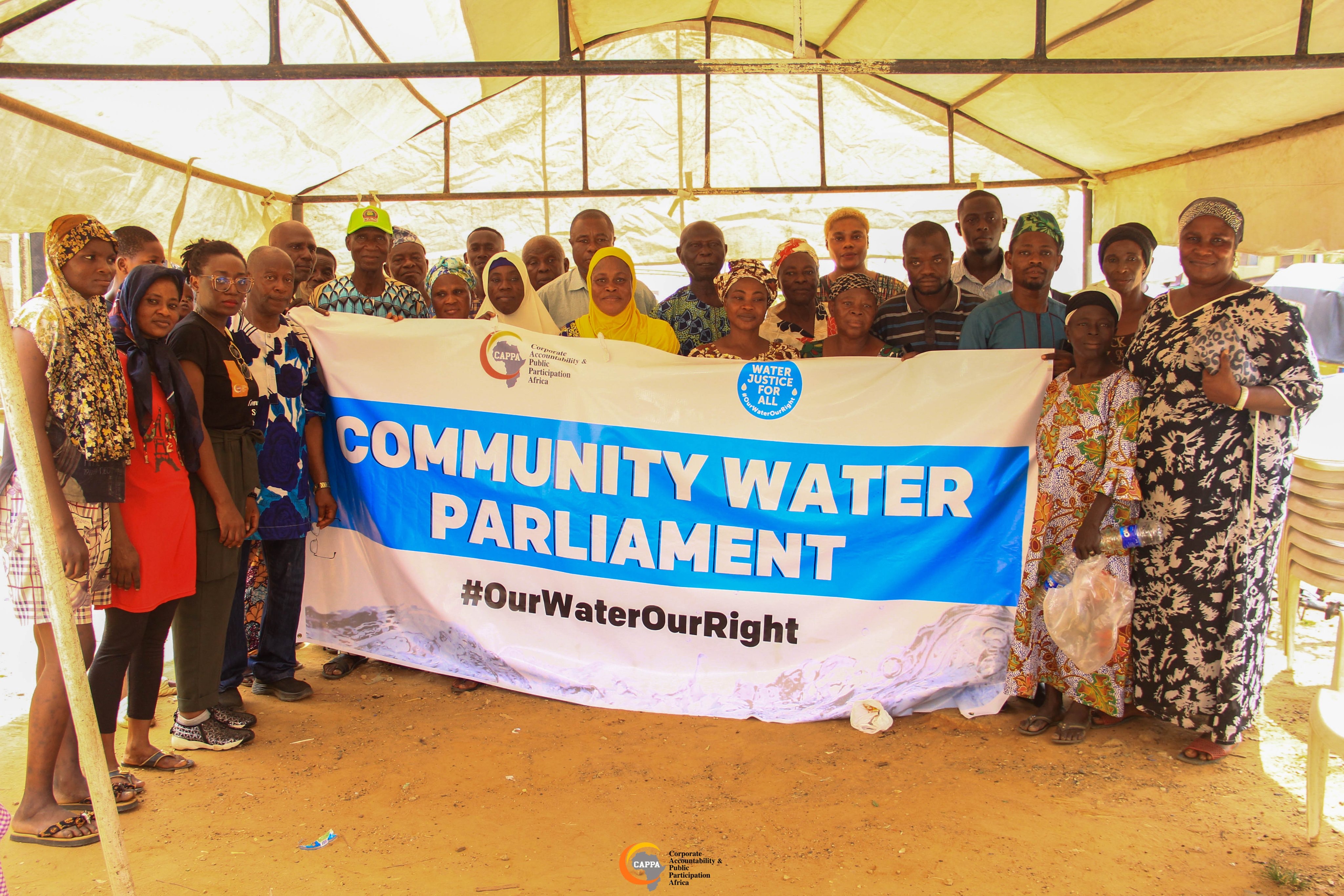
Voices from the South Newsletter

Oludamilare Ola-Daniels
Oludamilare is the Program Officer for Ecumenical Water Network Nigeria. He is based in Ibadan, Nigeria.
By Oludamilare Ola-Daniels
WATER is life. WATER is a public good and must be reserved and preserved as a human right.
Yet in the Nigerian context, we do not see these rights being respected – only a small percentage of the population has access to clean and safe drinking water and sanitation facilities.
While there is no doubt that we are in need for solutions to ensure that everyone has access to this human right, the solutions proposed in the “National Water Resource Bill” would lead us in the wrong direction.
In 2023, we stopped this bill. Amidst all of the uncertainty of rights in the country, networks like ours have stood, struggled and strived to preserve the right of water for every Nigerian, in words and actions.
Our mobilizations contributed to a new discourse around water in Nigeria.
Here is how we did it.
THE CONTROVERSIAL WATER BILL AND THE THREAT OF PRIVITAZATION
Privatization has been professed to the African leaders as an economic reform that aids to intensify the push for economic liberation, a feat desperately sought by African countries. There are increasing examples of African countries being pressured to yield their public resources to international private companies.
The 8th Nigerian National Assembly was thus presented with the controversial water bill, that sought to transfer the control of water resources from states to federal government.
Civil society groups, human rights groups, and trade unions (like AUPCTRE which represents public sector workers in Nigeria) raised the alarm on the bill. The bill (especially its newer versions) intended to among other things privatize water, and to regulate its production and supply in the hands of the federal government.
It would have risked yielding water authority to private, multi-national water companies. It would have weakened meaningful public participation in water governance by those typically left out of decision-making, including women, low-income, and rural communities.
The water we so desperately need would be inaccessible to the people.
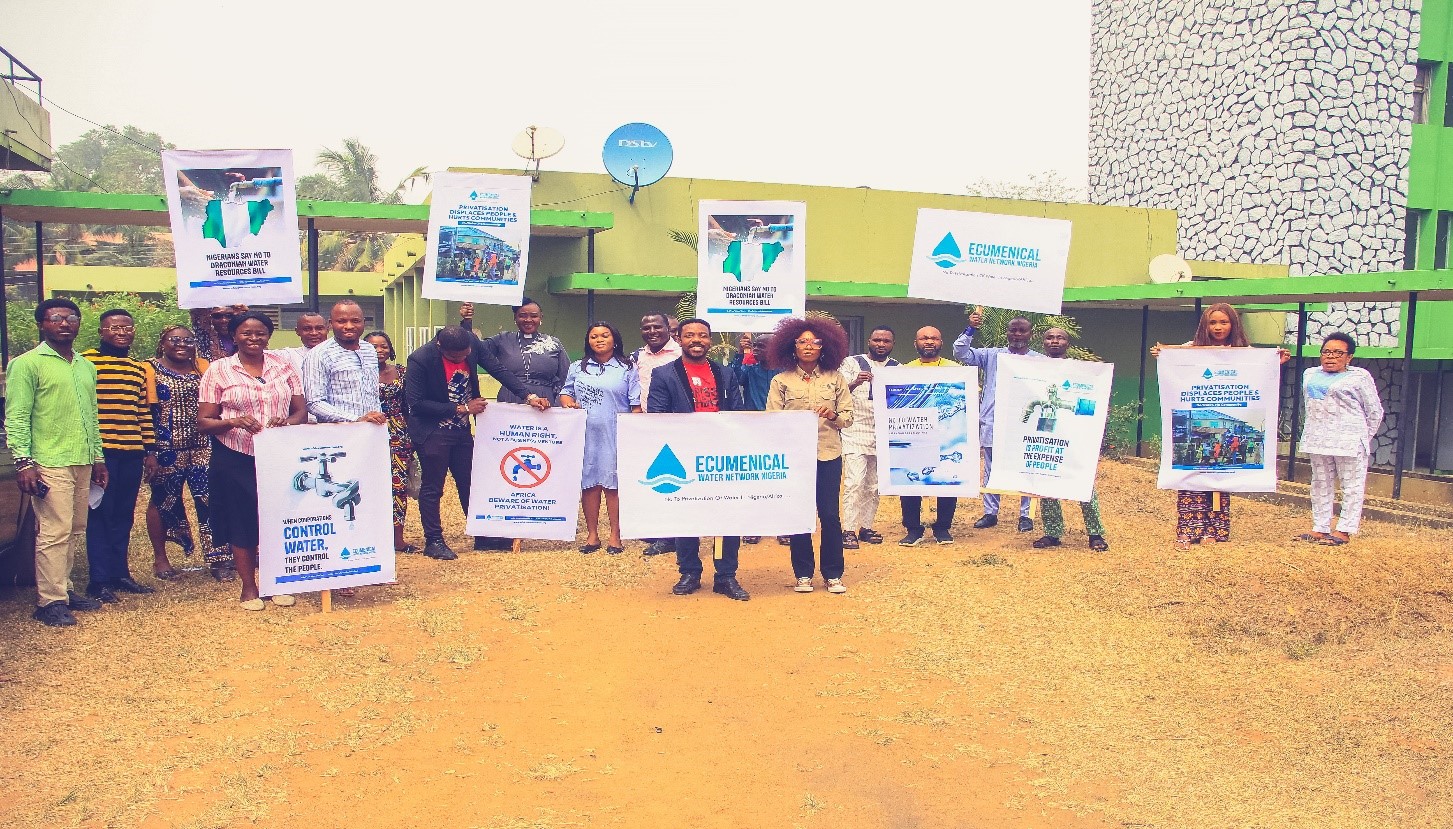
OUR WATER OUR RIGHT: THE BIRTHING OF A NETWORK
For us, the human right to water must be based on three components:
- Availability
- Accessibility
- Affordability
Any bill, bond, law or edict that threatens to reduce any of these above three components, invited action of our group.
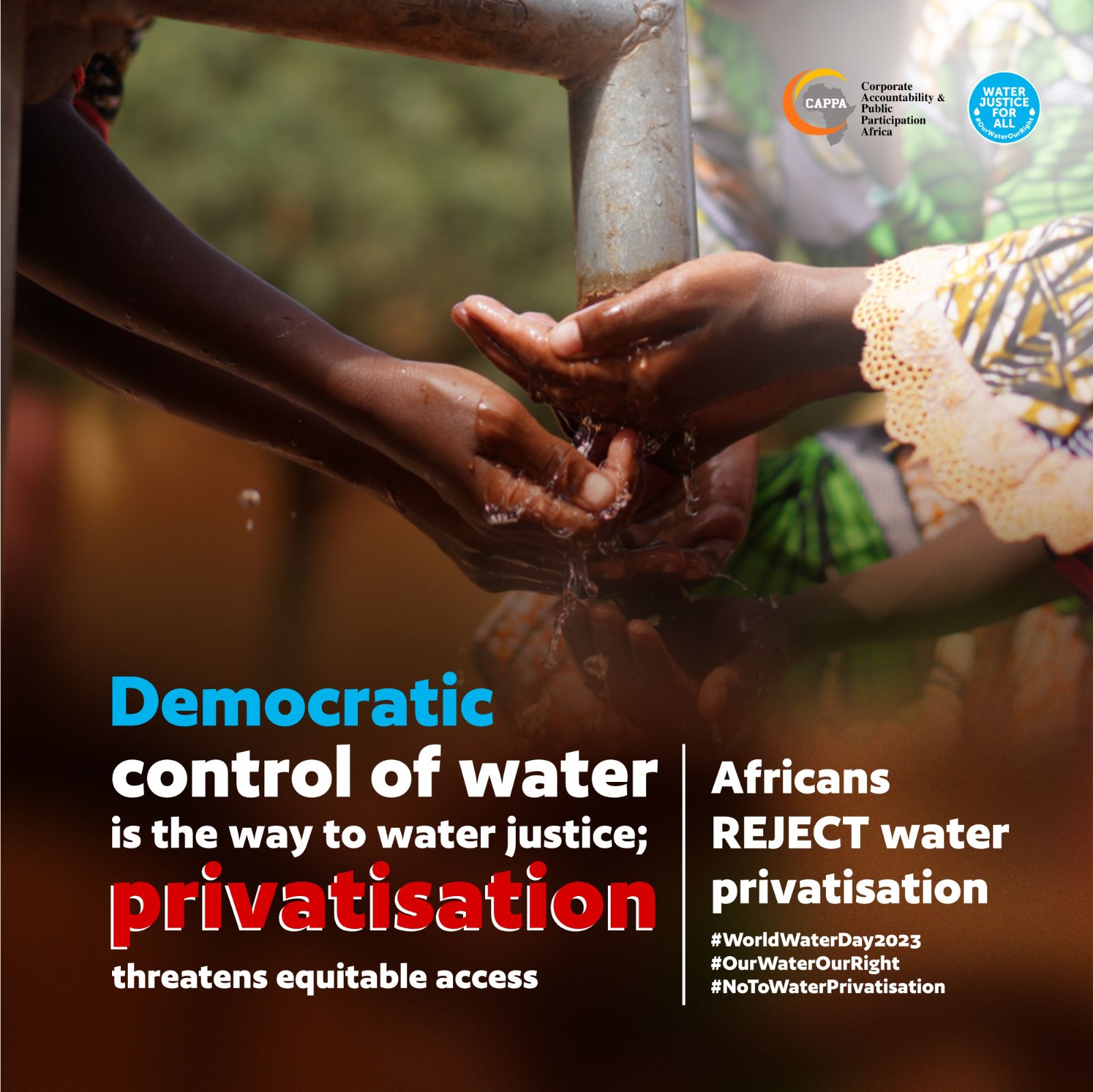
In January 2022, we organized a initial stakeholder meeting that included faith-based groups from across the country. This included the Student Christian Movement of Nigeria (SCM), Institute of Church and Society (ICS), Christian Rural and Urban Development Association of Nigeria (CRUDAN), Kairos Foundation of Nigeria, Preach Water Foundation of the Presbyterian Church of Nigeria and News Media Outfits.
These initial conversations led to the birth of a joint initiative and campaign that advocates for “Our Water as Our Right,” which still guide the network and its activities that still go on today. The campaign was based on the collaborated efforts, ideas, specialties and individual contributions of a broad coalition of voices.
TACTICS AND ACTIONS
Our actions sprouted from workshops and seminars, market and public place interviews, peaceful walks, town hall meetings, religious gatherings and student fellowships, to media focus.
We organized a Train-The-Trainer programme, with the participation of around 15 national and regional organizations and networks in Nigeria.
All of our efforts during this campaign could have either gone unnoticed or underestimated were it not for the strong media/press presence we were able to put to use as result of relationship of the network with press personnel. We had jingles on radio stations, headlines on newspapers online, social media coverage and interview sessions.
We used the news media, on-air programs with policy makers and social media platforms to propagate our outreach and campaigns, trending the #NO_TO_WATER_PRIVATIZATION.
We retained a bold message that we stand in solidarity against the proposed water bill and that the question of privatization was always going to come with the same answer from the network… it is a “NO”.

BUILDING UNITY IN DIVERSITY
The network was quick to recognize that it biggest strength was its breadth, and in the particular capacity, geographic region, and target area of each member organization. For example:
In the Western Nigeria – the most commercial part of the country where corporate voices have the strongest power, groups like the Kairos Foundation worked relentlessly with a sister organization Corporate Accountability & Public Participation Africa (CAPPA) to make sure our voices were heard – and heard clearly.
Nothing could quiet us, we periodically rotated activities in the various regions and states in the country, we hit the iron on all sides and did so strategically, harnessing strength from within each member organization and their allies.
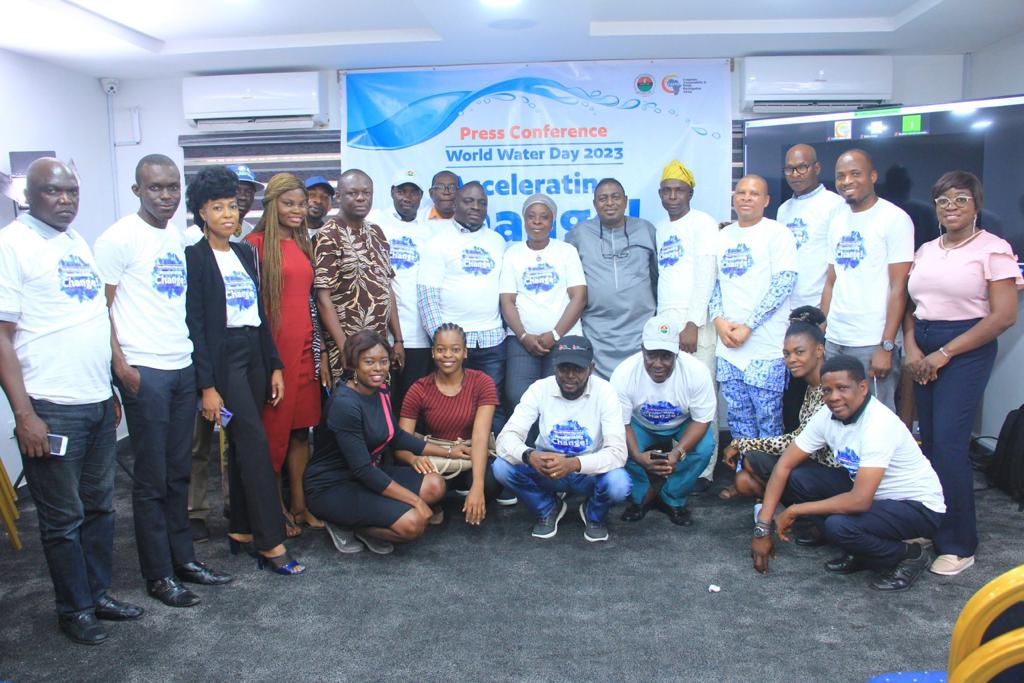
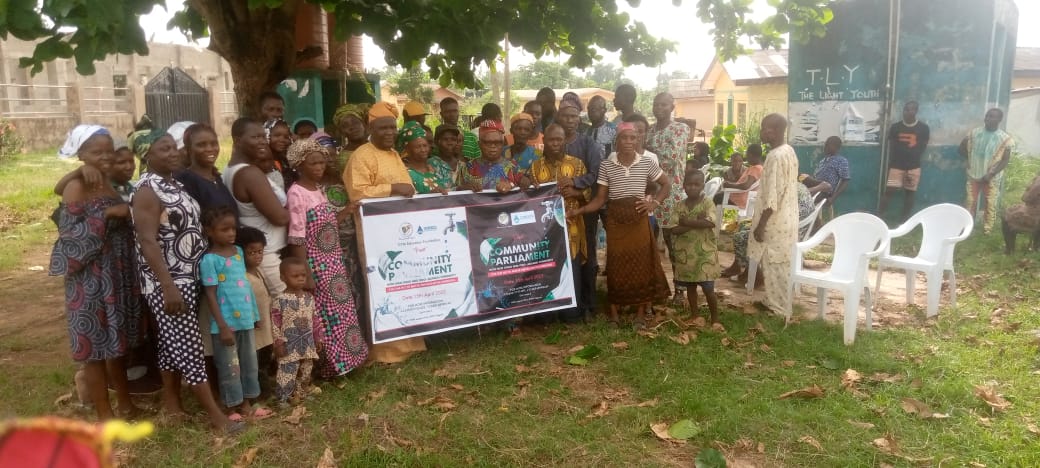
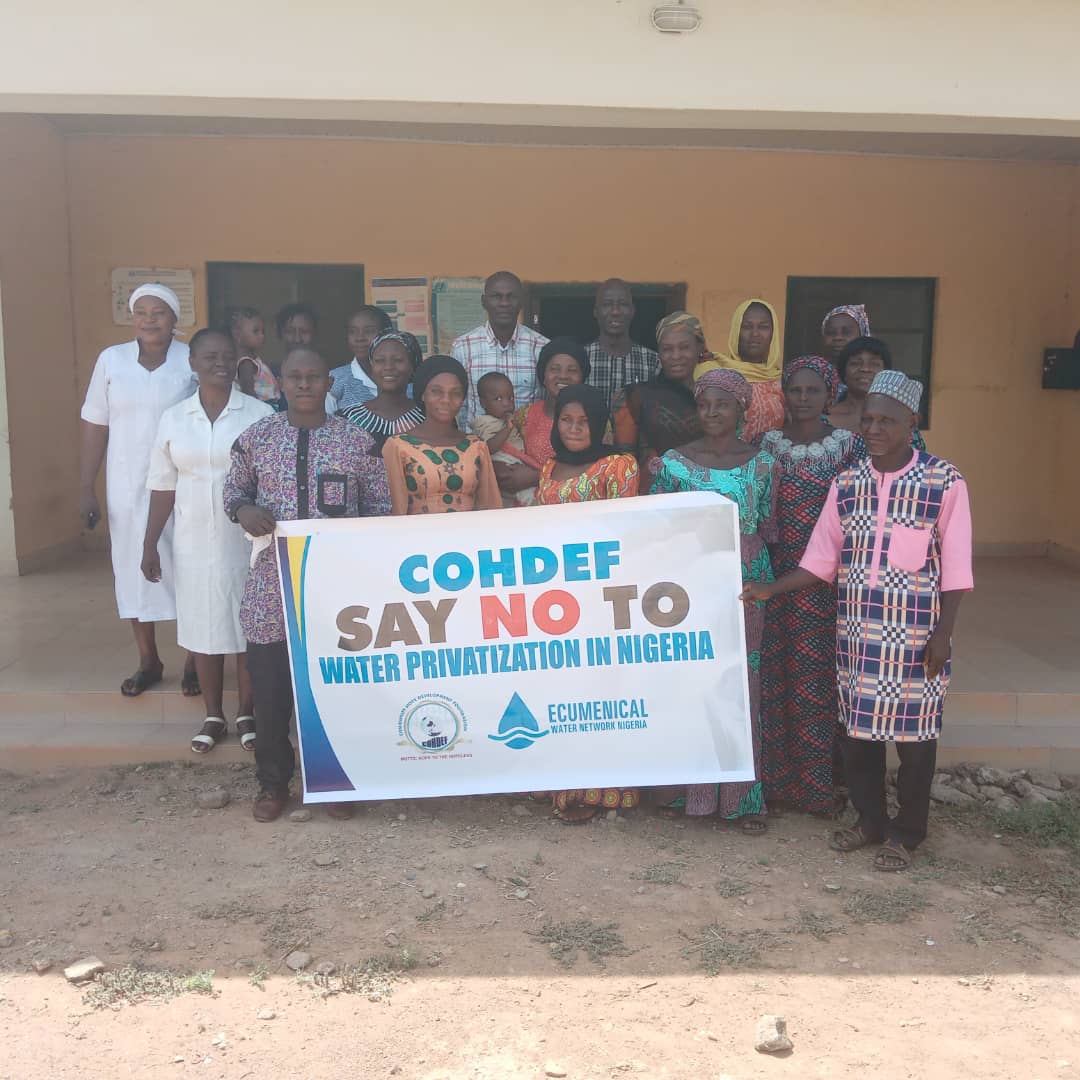
THE STRUGGLE IS NOT YET DONE
No such campaign would go without its highlights and lowlights, and above all we were never alone through this journey. We were one part of a larger, collective movement.
We are grateful for the support of the many groups (including the Christian Council of Nigeria and CAPPA), whose facilities, skills, expertise and efforts contributed immensely to the victory we now boast of in quenching the water privatization bill.
Although we are a young network, we have brought with us this victory. And if a bill like this were ever to rise again, we know we are ready to take continue the struggle for “Our Water – Our Right”. The EWNN, backed by other allies, will make no hesitation to move strongly together. Clean water is still not available to all, and we need to continue our struggle.
We hope our story of “how we did it” can be an inspiration to our continental neighbors.
We hope for a win for all on water rights, as we continue to find solutions that secure the water we all desperately need.
The Ecumenical Water Network Nigeria is a network community leaders, developmental associations, religious based organisations, student based organizations, media outfits, women and children based groups, all advocating for water as human right for the Nigerian people. The network was birthed following a stakeholders meeting in 2022, and is now a chapter of the Ecumenical Water Network-Africa (an initiative of the World Council of Churches).
